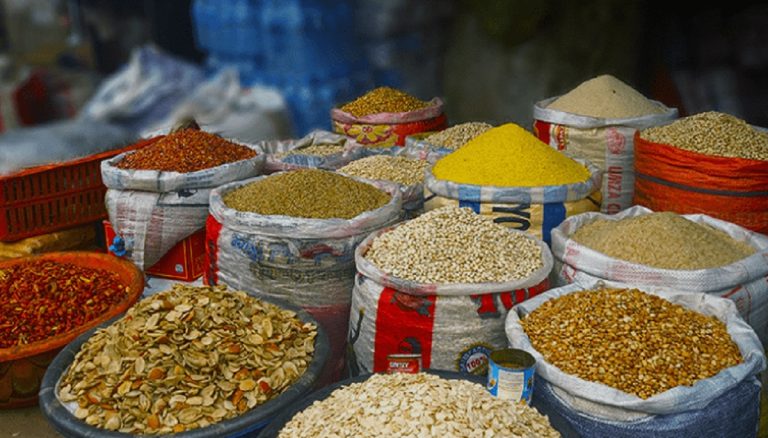The International Fund for Agricultural Development (IFAD) says it is committed to collaborating with the international community in addressing Nigeria’s food and nutrition challenges.
The IFAD Associate Vice President Rome, Dr Donal Brown made this pledge at the international news conference on Saturday in Abuja tagged “Dr Brown High-level Mission to Nigeria.’’
Brown said the mission was to deepen IFAD’s partnership with the Federal Government and also support the government’s efforts at food system transformation.
According to him, the gesture is geared towards food and nutrition, security, improved livelihoods of smallholder farmers, and inclusive agro-industrialization.
“My mission is not only to strengthen our partnership but secondly is to look at the future direction of support that IFAD can provide the government.
“My visit is also to review IFAD partnership with Nigeria on food security and agriculture and to think about the future directions support we can give.”
The associate vice president, who decried many challenges facing Nigeria ranging from inflation and food among others, said that President Bola Tinubu’s emergency declaration on food would make a difference in that context.
Brown said IFAD worked in rural communities with smallholder farmers to improve food security and agriculture, adding that the organization had a strong partnership with the government.
He assured that the organization would design a new project to support the government’s food production value chain on climate adaptation.
“Most of our programmes, like the Value Chain Development Programme (VCDP), and Livelihood Improvement Family Enterprises in Niger Delta (LIFE-ND) are performing very well.
“We have a very good project in Niger Delta focusing on youth entrepreneurship and value chain project and also supporting the African Development Bank on Special Agro Processing Zone (SAPZ) project.”
On his assessment of the organization’s ongoing projects in some states of the federation, Brown said the projects were impactful with few challenges.
“LIFE-ND is extremely successful and I am looking at extending the project for two years; VCDP which has been in the country for 10 years also has very good results.
“But there are some issues with the management of the project we need to address to make it more efficient and the extension will be based on improvement in the management of the project.
“What l notice is not just with the Federal Government seriousness but also with the state government seriousness regarding payment of counterpart fund,” he said.
The IFAD Executive Board Member and Permanent Representative to IFAD, Food and Agriculture Organization (FAO), and World Food Programme (WFP), Rome, Dr. Yaya Olaniran said the country was dealing with four terrible situations.
Olaniran identified the challenges as climate change effect, COVID-19 effect, conflict, and high cost of input describing the challenges as diverse of inflation.
“These situations will not go away until some of the necessary palliative measures are put in place and the two projects LIFE-ND and VCDP are talking about addressing right, front, and back
“So, whatever we want to do if the government is prepared, ready to play its part and the needful are done it will be easier for other countries to come in and assist.
“For the president to declare a state of emergency on food means all hands must be on deck, take care of what you can take care of, particularly in the rural,” he said.
The IFAD Country Director, Nigeria, Dr Dede Ekoue identified the priority challenge to be addressed as resilience to economic shock regarding prices.
According to her, internally, there is a need to work to get the most out of the funding by ensuring that all the implementation is done more efficiently.
“When we invest efficiently; we can drive more results,” she said.
By Felicia Imohimi



